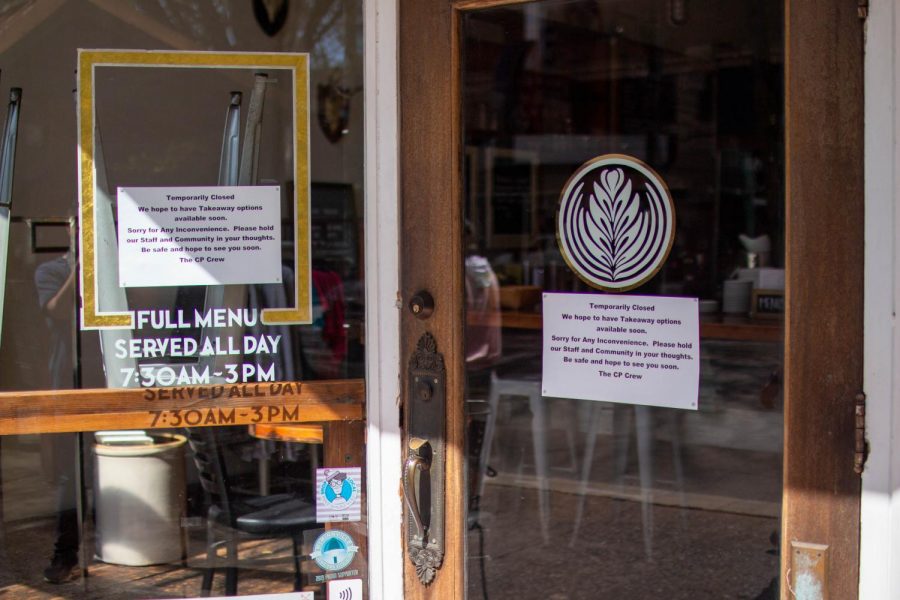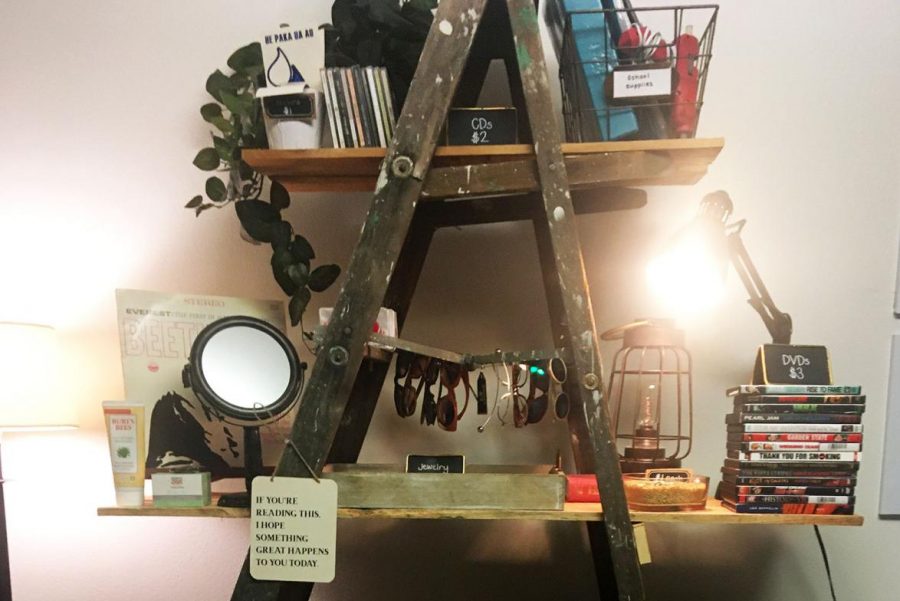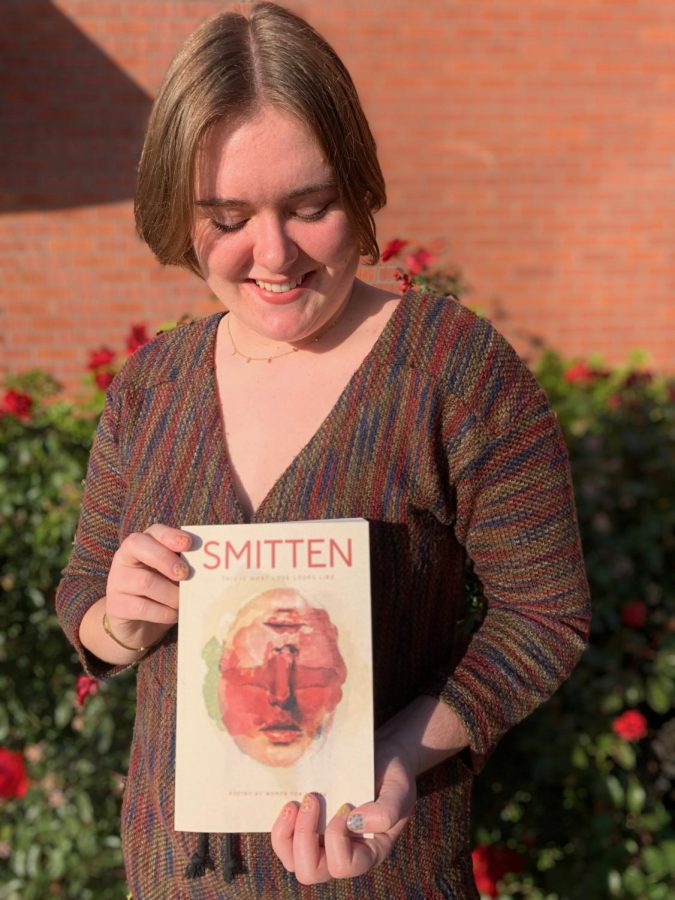The cold weather may bring false signals of an ongoing winter season, but spring is just around the corner and begins on March 20. One would think with the blooming flowers and trees pollinating during this time of year, the worst of seasonal allergies is yet to come. However, many Linfield students have experienced year-round symptoms that may be a result of allergens specific to the Willamette Valley and increasing effects of global warming.
Senior Sarah Spranger, TLR business manager of Mercer Island, Wash., has suffered year-round allergies that become notably worse when she returns to campus.
“When I go home for the weekend, my symptoms seem to disappear,” Spranger said. “I really think that my allergies get worse when I’m in McMinnville.”
Nurse manager Tina Foss of the Asthma Allergy Centre in McMinnville said that allergies aren’t more common in the Willamette Valley but simply unique to the area. Students coming from other states are exposed to these new allergens and then react.
Naturopathic physician Bruce Dickson of the Key to Health Clinic in McMinnville elaborate on the emerging spring allergens.
“Right now the birches and hazelnuts are blooming,” Dickson said. “The big thing for people around here is the grass; we have several kinds — Johnson, Sudan, Timothy and blue grasses — on golf courses.”
The website www.Oregonallergyassociates.com specifically lists pollen seasons specific to the Willamette Valley and the allergens produced. It also explains why certain allergens are more common than others.
“The Willamette Valley has a high grass pollen due to nearly 500,000 acres of land used for commercial production of grass seed,” the website states.
Other sources reveal that global warming is responsible for the increasing length of pollen seasons. According to a Feb. 22 Huffington Post blog post “Allergy Season Longer from Global Warming in North America,” pollen doesn’t become an irritant until it crosses a certain threshold for many allergy sufferers.
“The longer season and more powerful plants may be the threshold needed to trigger allergies,” the post states.
The blog post also noted that 50 million Americans have allergies, which can worsen into asthma.
Spranger said her asthma has been effected by allergies.
“Sometimes the allergies make my asthma bad enough that I can’t go to class, and it makes homework miserable,” she said.
Foss said everyone is affected differently depending on their allergy.
“The most common effects are runny nose, itchy eyes, nasal congestion and drainage, which make everyday tasks difficult to complete,” Foss said.
Foss said blood and skin tests are used to detect allergen sensitivities in patients and determine the appropriate treatment for seasonal and year-round allergies. Common solutions include antihistamines and immunotherapy or allergy shots used to increase tolerance against the detected allergens. Foss also suggested to wash sheets in hot water as this may help reduce the effects of pollen from trees, grass and mold.
For allergy sufferers seeking a more natural remedy, Dickson suggested advanced allergy therapeutics, which is provided at his practice. The approach combines 21st century technology with 3,000-year-old acupuncture principles to help reset the immune system.
“Allergies are an abnormal response by the body to something that is actually normal in the environment,” Dickson said. “They are usually developed in times of stress or after infections, and the body reacts. With naturopathic medicine, we’re not trying to suppress symptoms but rather strengthen the immune system and eliminate the cause of the reaction.”
For more information about advanced allergy therapeutics, Dickson suggested visiting allergytx.com, especially for those seeking treatment without the use of shots, needles or supplements.
To reduce the discomfort of her allergies, Spranger uses an antihistamine and nasal spray and rinses her sinuses frequently.
“I also had to have sinus surgery because I was having so many sinus infections [from allergies],” Spranger said, “I can sympathize with people who are suffering from them.”
Many students misconstrue seasonal allergies for the common cold. Here are tips for distinguishing between the two:
Pollen seasons in the
Willamette Valley:
December: Cedar; Pine
January: Hazelnut; Juniper; Cypress; Spruce
February: Alder; Birch; Elm
March/April: Oak; Sycamore; Cottonwood; Maple; Ash; Walnut
Allergies vs. colds:
• Allergies — genetic hypersensitivity causes a reaction when exposed
• Symptoms — last for weeks or months, sometimes year-round
• Nasal discharge — thin, watery
• Allergies do NOT cause fevers.
• Cold — viral infection
• Symptoms — last for two weeks
• Nasal discharge — mucous color starts clear, then becomes cloudy and discolored
• Cold may cause fever, head and muscle aches
(Information from oregonallergyassociates.com)
EpiPen
For some, allergies are a serious matter. People may need to keep certain treatments, such as antihistamine, an inhaler or even epinephrine, on hand. Epinephrine often comes in the form of an EpiPen (Epinephrine Auto-Injector), which is used to combat anaphylactic shock , which can occur during anaphylaxis. According to National Center for Biotechnology Information, anaphylaxis is a severe, whole-body allergic reaction to a chemical that has become an allergen.
Instructions for using a traditional EpiPen:
1. Pull off the safety release.
2. Swing and firmly push the orange tip against outer thigh so it clicks on and hold thigh approximately 10 seconds to deliver drug.
3. Seek emergency medical attention.
by Felicia Weller/Copy editor
Felicia Weller can be reached at [email protected].







